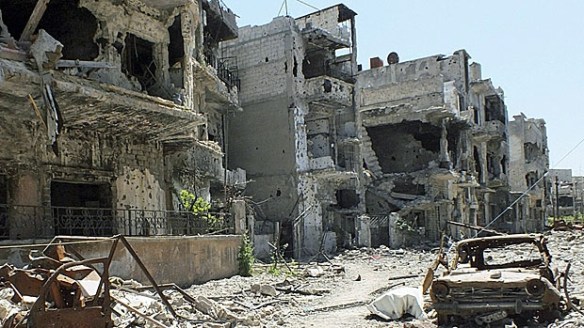
Stop for just this moment
and consider:
the roads you are traveling
will not lead you to my kingdom.
You journey so proudly
so blindly
through this barren land
and I can abide it
no longer.
Your false piety
has become unbearable to me.
You look up to the skies,
you say all the right prayers
yet somehow you cannot see
that the world is coming apart
all around you.
You look for me endlessly,
you ask me to show you the way;
how can you be so eager to know me
yet so unwilling to see my face
in the one who is standing
right next to you?
You fast on this holy day of yours
while children go hungry in your own city
and families line up for bags of grain.
You pray for your martyrs,
you recite Yizkor and Kaddish
then sell handguns and Apache helicopters,
and profit from the blood they spill.
You call for inclusion and compassion
while you build a system of racism
and oppression that grows
without end.
You march for peace
but refuse to see the difference
between the hollow peace
of domination and control
and the true peace
of justice for all.
You advocate for human rights
in far off lands
and yet you lock up and shoot down
black and brown bodies
in your own backyard.
You chant from your holy texts:
“do not oppress because
we were once oppressed”
while you occupy another people.
You wield your legacy of victimhood
like a weapon
as you expel and expropriate,
build checkpoints and demolish homes.
You preach of freedom
and democracy
and yet you treat the world
as your personal fiefdom.
you topple governments of nations
that refuse to serve your interests,
prop up tyrannical regimes
to ensure your hegemony.
Your fast today is meaningless to me.
Do you really think this is the fast I desire:
to forgo food for one day
to intone the same prayers
to confess the same sins
year after year?
Do you believe such a fast,
will make a difference?
No, this is the fast I desire,
dismantle your systems of oppression
open wide your prisons,
tear down your separation walls,
destroy your weapons of death
let justice rule in your streets.
Open wide the vaults and
share your abundant wealth so that
all are fed and clothed and sheltered.
Bring in the immigrants,
let the refugees return home
at long last.
These are the sacred sacrifices
I have been asking of you all along.
Do you think you are up to the task?
Will you offer them to me?
Will you let go of your old ways,
your hollow meaningless rituals
and find the courage to worship
with offerings that I truly require?
Are you ready to spread my healing
across this broken bleeding world,
to stop looking forward and behind,
and venture into the dark places
you would never dare to tread,
only to realize that you have been
dwelling there all along?
Do you have the strength to say
to the ones whom you find there:
hineini
here I am, here I am,
here I am.
These sacrifices you offer up to me
cannot possibly be sustained.
Your well will run dry,
the source of your very lives
will be depleted and soon
you will have nothing left to give.
So let these wells dry up,
seek out the springs that give forth
life giving waters without end.
Restore the foundations of my world
Tear down the walls you have built,
Rebuild the homes you have destroyed
Erase the borders that you have drawn.
Open your sidewalks and pathways,
your roads and highways,
clear the way for all
to find their way without fear
and you will discover a place
you never dreamed could
ever possibly exist:
the place where the low is brought high
and the high is brought low:
the kingdom of heaven
that dwells right here
on earth.






